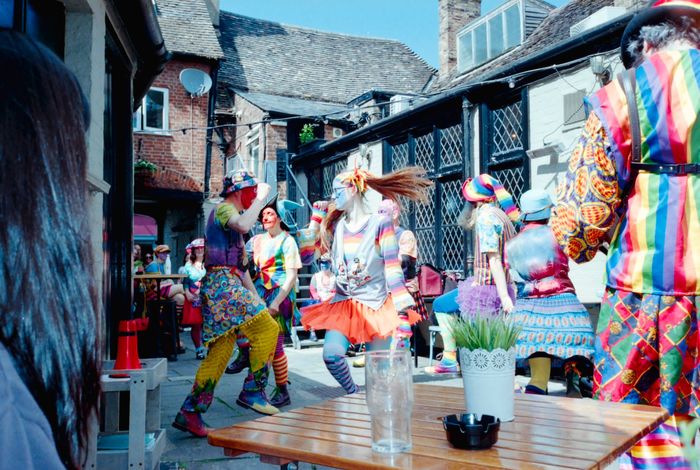Are we witnessing the end of amateur athletes in the United States?
Louise Crary looks into the new settlement allowing the National Collegiate Athletic Association to pay university athletes.

The NCAA (National Collegiate Athletic Association) was founded over a hundred years ago in the United States to regulate the rules of college sport and protect the lives of young amateur athletes, but is this really still their mission?
The payment of student-athletes by the NCAA has been a years-long process. In July 2021, the organisation allowed student-athletes to profit from their name, image, and likeness. In theory, this was a positive development, enabling athletes to benefit from a billion-dollar industry to which they were already contributing and in which their likenesses were often already unofficially being used. In May 2024, following a class-action antitrust lawsuit, the NCAA officially created a revenue-sharing plan for US college athletics, which meant that schools could now directly pay their athletes.
“Athletes’ goals will inevitably be entwined or even constrained by the actions of the commercial sector”
The settlement was very unclear, and colleges and their athletes are still unsure who is going to be paid what. The commissioner of the Horizon League (an athletic conference within the NCAA), Julie Roe Lach, called it a “rushed” and “not inclusive” process. However, it has already had substantial impacts on the nature of college sport; for example, following the landmark ruling basketball players at Dartmouth College formed a union, as they were now officially recognised as employees of the school. This marked a dramatic shift away from the kind of amateurism that we normally see in college-level athletics.
As the American college football playoffs and March Madness (College basketball) approach, it is almost impossible to watch these competitions and not think about how this is the last year where these games will be played by genuine amateur college athletes. Will the games next year more closely resemble those of the professional leagues? How will the newly established relationships between these elite athletes and their schools affect the team atmospheres on the playing field? Now that we know student-athletes will be able to share in the profits of the multi-billion dollar industry that is US college sports, the question that remains is how this development is going to affect their lives, and the very nature of college sport itself.
“The US has certainly set a new precedent which could very well have international implications”
While in many ways it was inevitable that such a large industry would eventually profit the young athletes who support it, would it have been better for college sports if the athletes were to remain amateurs? Private investors will now hold stakes in college sporting events which used to be solely designed to give the athletes a chance to support their teams, and, if they were lucky, to have a chance to put themselves in their school’s sporting hall of fame. Without this type of amateurism, the athletes’ goals will inevitably be entwined with or even constrained by the actions of the commercial sector.
There are other, more easily spottable issues with the current NCAA settlement, namely the equal payment of athletes. Even though the initiative was designed to allow student-athletes to profit from an industry which they were already supporting, there is already significant inequality within the way that this issue is being approached. Only one of the top ten highest-paid college athletes is female, and the initiative will most likely mainly favour male athletes at top institutions. The settlement seems poised to work to the benefit of athletes who already receive the most support from their schools, and even if those are the ones drawing the most commercial interest, it will deepen existing inequality between the funding of men’s and women’s sports in college.
We are at a very interesting moment in the history of college sports right now. The US has just laid the foundation for the shift of college athletics away from amateurism and into the professional realm. There is currently nothing in UK university sports which can genuinely rival the multi-billion dollar US college athletics industry. Nevertheless, there are some sporting events here in England which have very similar types of commercial engagement and sponsorship. In particular, a sporting event which is very close to Cambridge hearts: The Boat Race.
The commercialisation of the race fully began in 2009 when it became known as the “Xchanging Boat Race,” after the technology company Xchanging became the event’s headline sponsor. Today The Boat Race has partnerships with brands such as Chanel, T. Rowe Price, and JL Racing. There seems to be no talk of following in the NCAA’s footsteps and paying the athletes who make this huge event happen, but the US has certainly set a precedent which could very well have international implications in the future. It remains to be seen whether England will remain true to the amateur roots of college sport or follow in the US’s footsteps.
 News / Uni Scout and Guide Club affirms trans inclusion 12 December 2025
News / Uni Scout and Guide Club affirms trans inclusion 12 December 2025 News / Cambridge Vet School gets lifeline year to stay accredited28 November 2025
News / Cambridge Vet School gets lifeline year to stay accredited28 November 2025 Science / Did your ex trip on King’s Parade? The science behind the ‘ick’12 December 2025
Science / Did your ex trip on King’s Parade? The science behind the ‘ick’12 December 2025 News / Cambridge study finds students learn better with notes than AI13 December 2025
News / Cambridge study finds students learn better with notes than AI13 December 2025 News / Pembroke to convert listed office building into accom9 December 2025
News / Pembroke to convert listed office building into accom9 December 2025








